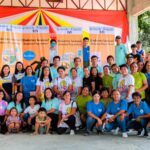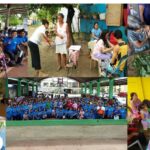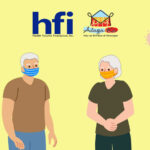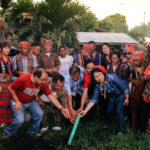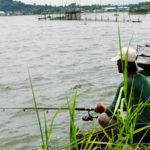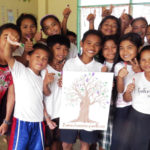
Entering the front yard of a humble abode facing a gravel road that cuts through rice farms, one can hear a radiating voice that confidently soothes everyone who can listen. Smiling despite the summer heat, Angeline Dela Cruz, a Community Health Nurse (CHN), helps empower residents of Barangay Tandoc (with a population of 898, as per 2020 Census) in Talugtug, Nueva Ecija, to take charge of their health and well-being.
Formerly a hospital nurse at the start of the COVID-19 pandemic, Angeline has been serving as a CHN of Health Futures Foundation, Inc.’s (HFI) Alay sa Ginhawa at Kalusugan (ALAGA KA) program for four (4) years now. She provides primary healthcare services, organizes the community into health clusters, and capacitates Barangay Health Workers (BHWs) and Health Cluster Leaders (collectively referred to as Community Volunteer Health Workers or CHWs) through training and mentoring on community-based health, leadership, and values formation.
Now in her second month in Barangay Tandoc, Angeline is conducting a community health needs assessment, facilitating cluster group orientations about the Community-Based Health and Wellness Program (CBHWP), and conducting house-to-house visits to get to know the CHWs better. She is also trying to get to know the people diagnosed with communicable and non-communicable diseases and has already suggested some plans to the barangay local government unit (BLGU) on what interventions can be done to care for the patients. As a CHN, she trains CHWs to equip them with knowledge and skills to provide preventive-promotive health care services and education to the community. As a community facilitator for health, Angeline ensures that her days are filled with activities for the furtherance of the CBHWP and is persistent in scheduling them alongside various community events.
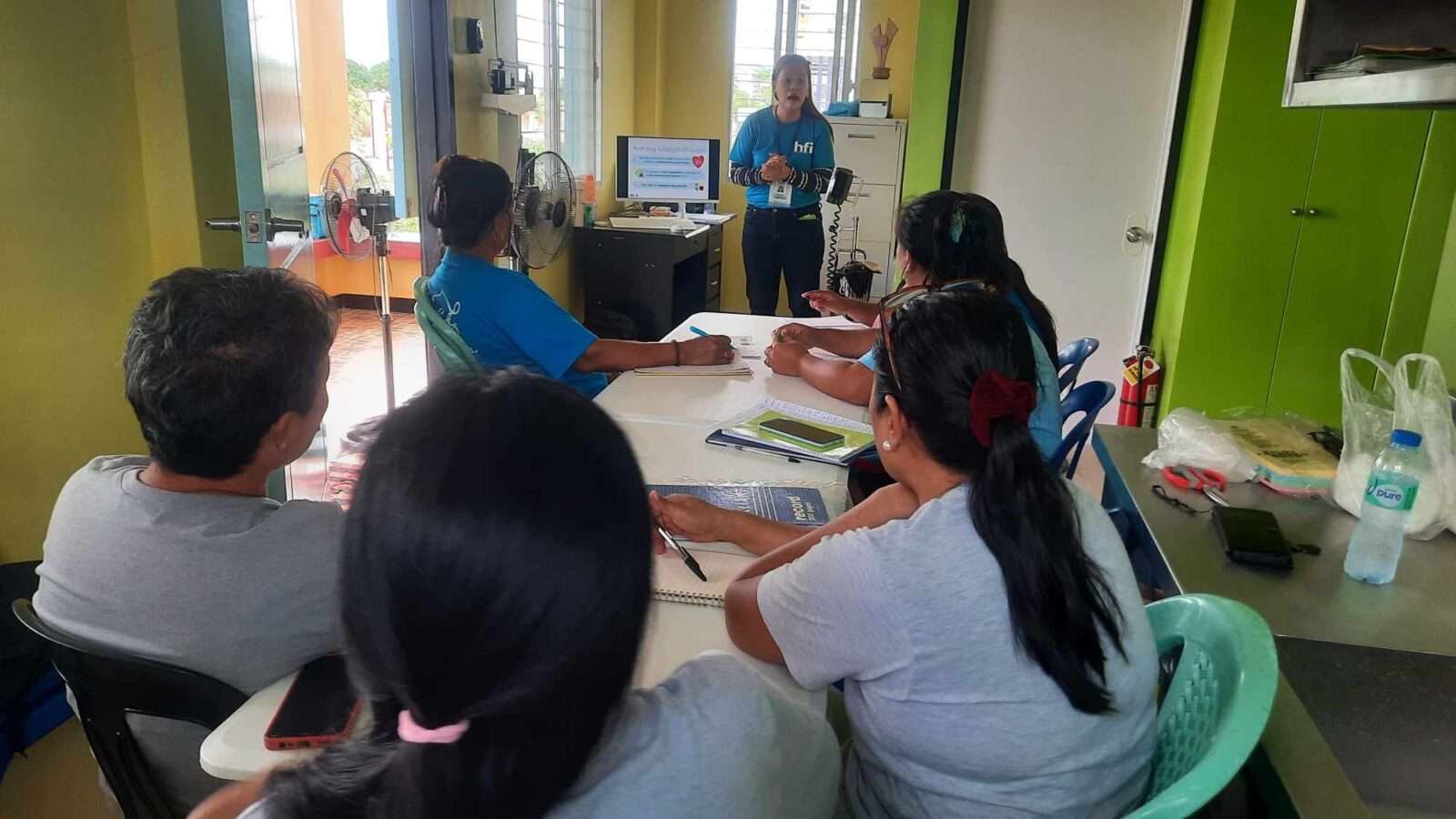
With her community experience, Angeline defines what being a CHN means. “In the community, all of the people are your patients. You must determine what are their needs. In the hospital, you will be together with the patients for only eight (8) hours and usually, your responsibility also ends when your duty ends. However, here in the community, there are times that health problems are not the only thing you have to look out for in order to know what the community members truly need for their health” (Sa komunidad, kumbaga lahat sila pasyente mo. Aalamin mo ang pangangailangan ng komunidad. Hindi katulad sa ospital kung saan kasama mo lang sila ng walong oras – kapag tapos na ang duty mo tapos na ang responsibilidad mo. Sa komunidad may mga pagkakataon na hindi lang mga suliraning pangkalusugan ang kailangang tingnan mo sa kanila, para makita mo yung tunay nilang pangangailangang pangkalusugan.)
Angeline has had her share of challenges in implementing the program. To fully immerse themselves in the community they are serving, CHNs are required to stay in a foster home as part of the ALAGA KA. Adjusting to a new area is not all rainbows for her. From being accustomed to living with her family, Angeline had to learn to live separately from them and stay in the community to live with the locals. Missing the comforts of home was a hindrance that she overcame with her vocational commitment. Looking back, she attributes her strong foundation as a CHN to the inputs provided through HFI’s ALAGA KA Program, such as the on-boarding training, mentoring, regular monitoring and feedback, and knowledge- and experience-sharing with fellow CHNs. Moreover, she points out that the fulfillment she gets from knowing that she can make a difference in the lives of people in the community is immeasurable.
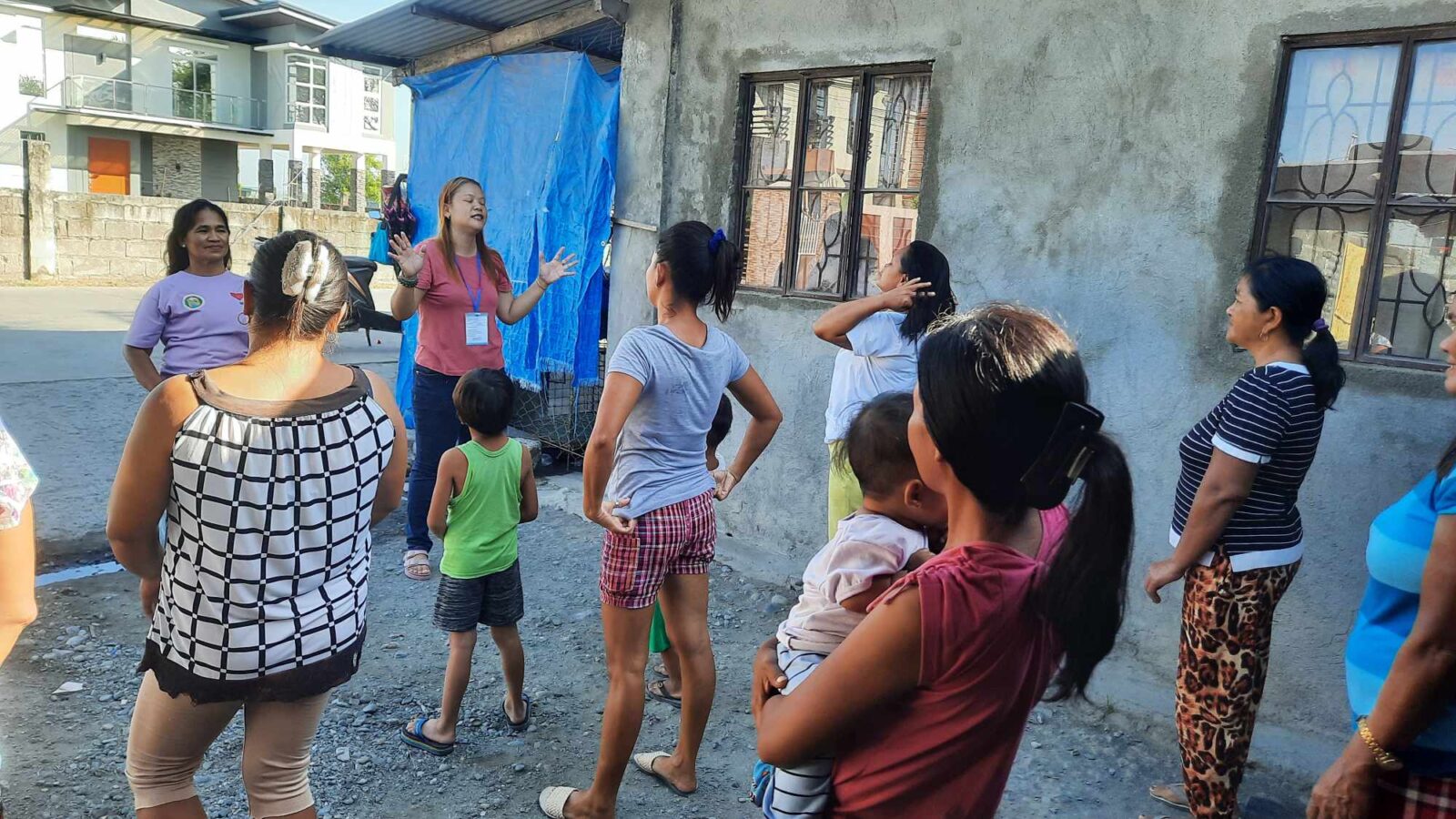
In her four-year experience as CHN, she has developed the savvy in building relationships with the communities. However, she admits that she still faces difficulties when adapting to a new area, just like what she is currently experiencing in Tandoc. “Because we are just newly acquainted, there are still times when we are not at ease with one another. Hence, visiting them in their houses is a good chance to socialize and build connections with them.” (Sa ngayon, dahil bago pa lang, may mga pagkakataong nagkakahiyaan pa siguro. Iyong pagkakataon na bahay bahayin iyong mga BHW, kumbaga parang napakagandang pagkakataon iyong pakikisalamuha at pakikipag-ugayan sa kanila.)
With the priority being given by residents to their livelihood, it can sometimes be difficult to persuade them to participate in health activities. Taking this into consideration, Angie remains persistent in conducting health education and health promotion activities, mindful of the occupations and time limitation of the audiences she is targeting. Slowly but surely, she fosters shared values, sustainable relationships, and efficient collaboration among them.
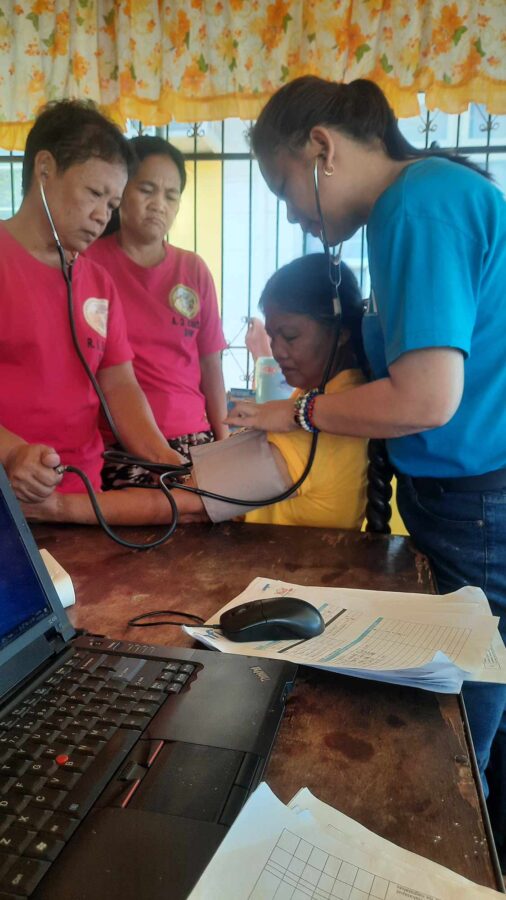
When asked what continuously pushes her to stay as a CHN, Angeline was emphatic in saying that it is more than just a job for her. “I think I did not become a CHN for this long if I am not enjoying the work. I like the job, I enjoy talking to people, giving them health education, and guiding them for health promotion, making use of my talent of talking and being near to the people. These help me to continue my work.” (Nagpatuloy ako sa pagiging CHN dahil gusto ko ang trabaho ko. Nag-eenjoy ako na may kausap akong mga tao, nabibigyan ko sila ng health education at nagagabayan para sa health promotion, gamit yung pagiging madaldal ko at yung pagiging malapit ko sa tao.)
“Being a CHN is not only about providing services to help those who are suffering from illnesses. It’s like you become a teacher, aside from being a health provider, a complete package so to speak. That is the thing that I learned.” (Ang pagiging CHN hindi lang siya pagbibigay ng serbisyo para matulungan ang mga may sakit. Para ka na ring naging teacher, bukod sa pagiging isang provider, lahat lahat na kumbaga. Yan ang mga bagay na natutunan ko.)
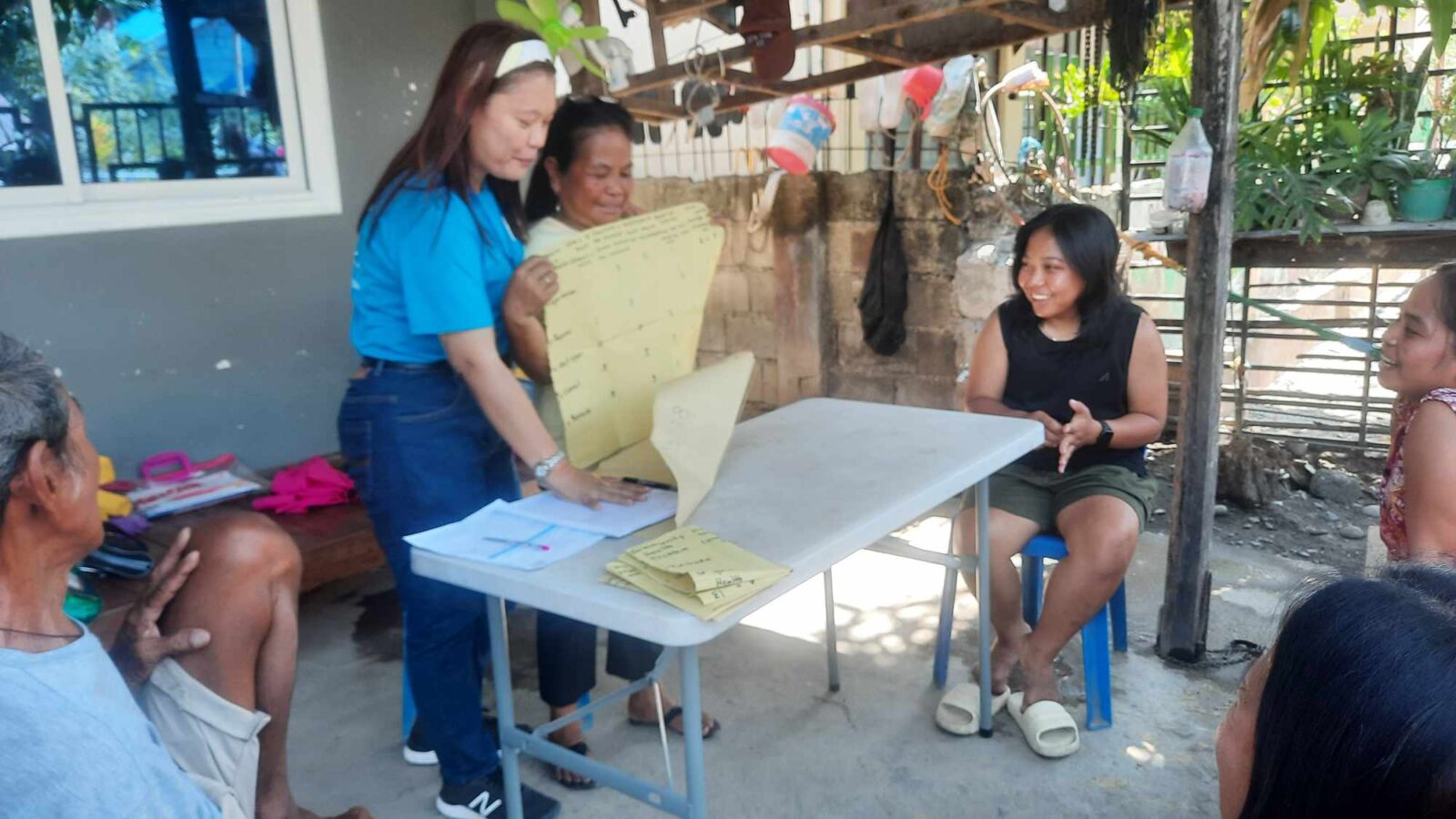
“From HFI, you will learn how to teach the BHWs about health communication which you cannot learn in the hospital. In the hospital, you will just give to the patients what is advised by the doctor. As a CHN, you are like a teacher who continuously learns.” (Kay HFI matututunan mo talaga kung paano matuturuan yung mga BHWs nang mga bagay-bagay pagdating sa kalusugan. Sa ospital hindi mo naman matututunan yan dahil kung ano lang ang sinabi ng doctor, yun lang ang dapat ibibigay sa mga pasyente. Pero dito sa pagiging isang CHN, isa ka nang guro na patuloy na nag-aaral.)
As the sun sets, Angeline packs up the study aids used in an education session with the BHWs who are always thankful for the new things they learn. While the day fades away, Angeline ticks off the tasks she has accomplished and tabs those scheduled for tomorrow-tasks done in the company of CHWs whose lives she touches .. one village at a time.
__
Written by: Lizette Abibuag
Edited by: Pedrito dela Cruz and Nina Coronel
Read other CHN stories here.




